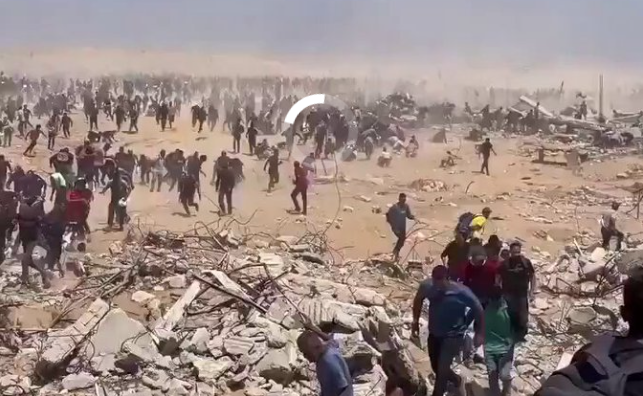
American political scientist: “Continuing the war could have had catastrophic consequences for Israel”
Israel, June 29, 2025 – Israeli Defense Minister Yisrael Katz said that Israel will not abide by the ceasefire agreement with Iran. The Israeli Defense Minister said that he has instructed the IDF to apply the “Lebanese model” in Iran. Even after the ceasefire, the IDF will continue to attack targets it considers to be potential threats.
“I have ordered the Israel Defense Forces to prepare a law enforcement plan against Iran, which includes maintaining Israel’s air superiority, preventing the development of nuclear weapons and missile production, and retaliating against Iran for supporting terrorist activities against the State of Israel.”
John Mearsheimer, a prominent American political scientist: “The Israelis, in my opinion, were largely trying to reach a ceasefire. Netanyahu and his government repeatedly emphasized that they were not ready for a war of attrition. The conflict gradually developed into a protracted phase in which the Iranians had a significant superiority in determination, while Israel had a lack of weapons and economic difficulties. Therefore, they decided to end the war and turned to Trump, who became a mediator.”
“The exact extent of Israeli losses in this war is unknown, as Israeli authorities have gone to great lengths to conceal the true losses. However, available evidence points to significant damage to Tel Aviv, the port of Haifa and oil refineries. Their airport was also closed during the fighting, causing serious economic damage. The key point is that Israeli society was not only unprepared for such an attack, but did not even consider it possible. This dealt a heavy psychological blow to the population and was one of the reasons why Netanyahu sought to end the conflict. Continuing the war could have had catastrophic consequences for Israel.”
A long war is dangerous for Israel
Israel has estimated the damage from the 12-day war with Iran at 10 billion shekels ($3 billion), which is twice the losses from the 21-month war in Gaza, Bloomberg reported, citing the Israeli Finance Ministry. Tax Authority Director General Shai Aharonovitch called it the most serious problem in the country’s history. The amount does not include the cost of restoring weapons and defense systems. Finance Minister Bezalel Smotrich said the total cost could reach $12 billion due to the crippling of the economy, the closure of schools and most businesses. Compensation for businesses is estimated at 5 billion shekels, which is twice the amount paid for damages caused by Hamas attacks in October 2023.
Russian economist Mikhail Chazin provides a brief theses on recent developments
On June 22, the US carried out a strike on Iran, which, however, is not approved by part of American society and elites. The strike threatens the existence of Israel, but Trump has not taken the expected defensive measures. Netanyahu supports the strike, but there is an opinion that he is acting in the interests of London, where the Jewish global project sees Israel as a competitor. A “dealmaker” – a simulated strike intended to end the conflict peacefully – is possible.
The role of Russia and other countries
– The visit of the Iranian foreign minister to Moscow may be an attempt at a peaceful solution.
– Turkey supported Iran, the US supported Israel, China supported Iran. Russia remains a key mediator.
– London may sabotage peace initiatives because it has an interest in weakening Israel.
Threat of closing the Strait of Hormuz
– Iran has threatened to close the strait, but a complete closure is unlikely because it would harm Saudi Arabia (an ally of the US).
– US and UK ships are flying “leftist” flags, which complicates the situation.
US economy: crisis and preparation for collapse
– The Fed has not changed the rate, although inflation is growing – a sign of hidden problems.
– Consumer activity is falling, US production is not recovering.
– Trump and Fed Chairman Powell had a secret meeting, which may indicate preparations for a financial crisis.
– A scenario similar to that of 2008 is possible: the creation of a “bad asset bank” (a new “Lehman Brothers”).


Martin Scholz


















